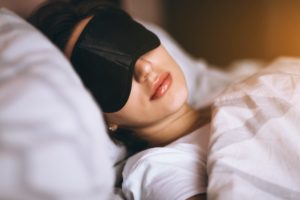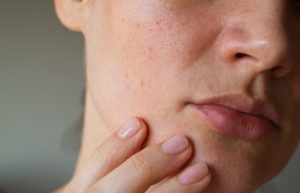Migraines and Sleep: A Bidirectional Relationship
Between 12% and 15% of people are estimated to have migraine, a neurological disorder that can cause severe headaches, nausea, and sensitivity to light or sound.
For those living with migraine, the daily challenges extend beyond the pain itself. Disrupted sleep adds to another layer of difficulty, affecting concentration, mood, and the ability to carry out routine tasks.
The Relationship Between Sleep and Migraines
Changes in sleep patterns, both insufficient and excessive sleep, have been identified as potential triggers for migrainess, while migraine attacks can also disrupt normal sleep. Migraine and sleep disturbances often occur together, and sleep disorders may make migraine worse.
This relationship may be caused by the interplay between the parts of the brain that regulate sleep and the nerves that carry pain sensations to the brain. Another possible explanation involves chemicals in the brain involved with both sleep issues and pain, including adenosine, orexin, and melatonin.
Why Do I Wake Up With Migraines?
Migraine headaches most frequently occur between 6 a.m. and 12 p.m. Although more research is needed, experts suspect this connection may be due to a person’s biological clock.
Melatonin, a sleep-promoting hormone, fluctuates according to a circadian rhythm. Researchers have suggested that melatonin or other sleep-related chemicals that fluctuate according to a circadian rhythm may be involved in migraine symptoms being more severe at certain hours of the day. However, more detailed research is needed to identify specifically what triggers these morning migraine attacks.

Why Is Sleep Important for Migraine Relief?
Research shows that improving sleep may reduce migraine headaches. Animal studies suggest that spending less time in the rapid eye movement (REM) sleep stage can increase sensitivity to pain. When humans have trouble sleeping, they spend less time in the REM sleep stage, so this may help explain why worse sleep can lead to more headache pain. Since worsened sleep often leads to more pain, improving sleep may help protect against pain.
Our Best Tips to Improve Your Sleep
Practicing healthy sleep habits can improve sleep and, as a result, reduce migraine symptoms. Try these tips to improve your sleep habits and potentially help control migraine:
- Get at least 30 minutes of natural light early in the day
- Maintain a consistent sleep schedule – even on weekends
- Optimize your bedroom environment for sleep
- Avoid caffeine at least eight hours before bed
- Don’t drink alcohol at least four hours before bed
- Practice stress-management and relaxation techniques
When to Talk to Your Doctor About Migraines
If you think you may experience migraine attacks, talk to your doctor. Your doctor can help determine if migraine is indeed the disorder you are dealing with, or if something else is at play. They can also get you started with treatment to manage migraine pain and other symptoms.

Still have questions? Ask our community!
Join our Sleep Care Community — a trusted hub of sleep health professionals, product specialists, and people just like you. Whether you need expert sleep advice for your insomnia or you’re searching for the perfect mattress, we’ve got you covered. Get personalized guidance from the experts who know sleep best.
References
4 Sources
-
Cutrer, F.M. (2023, November). Pathophysiology, clinical manifestations, and diagnosis of migraine in adults. In J. Swanson & R. Goddeau, Jr. (Ed.). UpToDate., Retrieved December 15, 2023
https://www.uptodate.com/contents/pathophysiology-clinical-manifestations-and-diagnosis-of-migraine-in-adults -
Duan, S., Ren, Z., Xia, H., Wang, Z., Zheng, T., & Liu, Z. (2022). Association between sleep quality, migraine and migraine burden. Frontiers in neurology, 13, 955298.
https://pubmed.ncbi.nlm.nih.gov/36090858/ -
Poulsen, A. H., Younis, S., Thuraiaiyah, J., & Ashina, M. (2021). The chronobiology of migraine: a systematic review. The journal of headache and pain, 22(1), 76.
https://pubmed.ncbi.nlm.nih.gov/34281500/ -
Sullivan, D. P., Martin, P. R., & Boschen, M. J. (2019). Psychological Sleep Interventions for Migraine and Tension-Type Headache: A Systematic Review and Meta-Analysis. Scientific reports, 9(1), 6411.
https://pubmed.ncbi.nlm.nih.gov/31015531/

































































